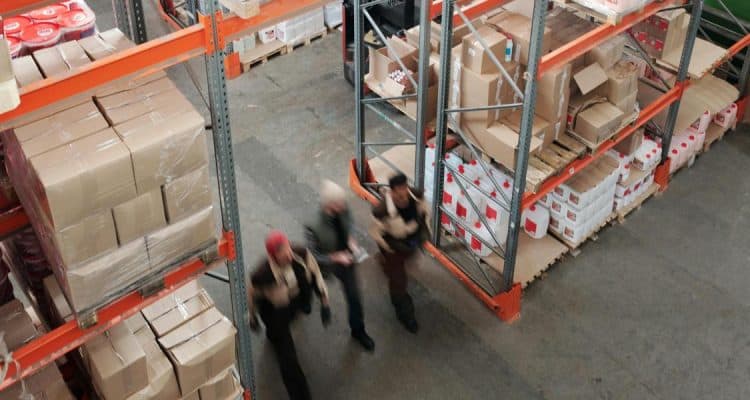
Epoxy flooring is a versatile, durable floor coating that consists of two main components: resin and hardener. It can withstand heavy foot traffic and operating machinery in commercial and industrial settings.
However, its longevity depends on the concrete surface and installation quality, environment, and regular cleaning. Proper care and maintenance help extend the lifespan of epoxy floors. The following factors will affect their lifespan: 1. Traffic Intensity.
1. Traffic Intensity

Epoxy is a very durable flooring material, and it’s capable of surviving a lot of stress. However, a floor that is constantly being put under stress is going to wear out faster than a floor that’s only used by the homeowners and maybe a few furry friends. This is one reason why it’s important to talk to trusted epoxy contractors about the amount of foot and vehicular traffic you expect on your new floor before making any decisions. They can help you determine if a thicker or more expensive coating would be better for your specific needs. In some cases, an extra urethane topcoat can also help extend the life of your epoxy floors in high-traffic areas.
The way you use and maintain your floors will also affect how long they last. For example, using abrasive cleaning products can actually wear the epoxy down. You should also avoid dragging heavy equipment or furniture across an epoxy floor because this could create scratches and dents. These small blemishes may not seem like a big deal, but they can cause an unsightly appearance and reduce slip resistance, which can pose safety risks.
Regular inspections and professional maintenance are also key for keeping your epoxy flooring looking its best over time. Addressing any signs of wear and tear promptly will ensure that they don’t get worse. You should also install walk-off mats at entranceways to catch any dirt and moisture before it makes its way into your space. This can also help prevent the formation of puddles that could soak into the floor and damage its surface.
Another factor that can affect the lifespan of your epoxy floor is the condition of the concrete slab underneath it. If the concrete is cracked or otherwise damaged, it can weaken the bond between the epoxy and the underlying surface and cause the epoxy to break down much faster. This is why it’s critical to repair any cracks or other issues on the concrete before applying an epoxy floor coating.
Epoxy floors are a highly durable and versatile solution for many different commercial and industrial applications. When properly installed and maintained, they can last for years and offer a number of other benefits. However, there are a few factors that can impact their longevity, such as traffic intensity, the type of chemicals exposed to them, and environmental conditions. By understanding these factors, you can choose the right type of flooring for your business and budget, and keep it looking its best over time. Contact us today to learn more about our epoxy coating services. We specialize in garage, basement, and commercial floors, and we’re committed to helping you find the perfect floor coating for your needs. We pride ourselves on providing exceptional customer service and quality work for each of our clients.
2. Chemical Exposure
Epoxy floors are renowned for their longevity, but they can’t stand up to the rigors of every environment. For this reason, understanding the nuances that impact their durability and lifespan is important to setting realistic expectations. Ultimately, the combination of quality installation, consistent maintenance practices, and environmental influences determines how long an epoxy floor will last.
In commercial or industrial settings, the nature and frequency of a facility’s traffic will directly impact an epoxy floor’s lifespan. High-traffic areas that are regularly exposed to the abrasion of heavy machinery or foot traffic will experience accelerated wear, while low-traffic areas can expect to maintain their appearance for years. Additionally, chemical exposure can dramatically affect an epoxy floor’s lifespan. Standard epoxy coatings are resistant to a wide range of chemicals, but when they are regularly exposed to highly acidic or alkaline substances, the protective properties can diminish quickly. In such cases, a specially formulated chemical-resistant epoxy coating may be required.
The condition of the concrete substrate upon which an epoxy floor is applied will also have a direct impact on its lifespan. Cracks, holes, and other surface irregularities can compromise the bonding strength of an epoxy floor and reduce its overall durability. Additionally, a subfloor that is subjected to moisture can cause delamination and deterioration of the epoxy coating. If a concrete floor has existing damage or is experiencing water intrusion, it may be necessary to implement a moisture barrier or other remediation methods before installing an epoxy coating.
As an alternative to traditional concrete, epoxy flooring is a highly durable and cost-effective solution for commercial or industrial settings. It is available in a wide range of colors and finishes, making it easy to match the aesthetics of any space. In addition, epoxy is non-slip and can withstand heavy machinery and other equipment. It is also easy to clean and stain-resistant, making it an excellent choice for food preparation areas.
Proper care and maintenance practices can greatly extend the lifespan of an epoxy floor. Regularly sweeping and vacuuming the surface can eliminate dirt, debris, and abrasive particles that can scrape or damage the finish. Placing walk-off mats or entry rugs in high-traffic areas can minimize wear, while cleaning spills promptly and avoiding dragging sharp or heavy objects on the surface can also reduce wear and tear. In addition, periodic recoating can revitalize an epoxy floor’s appearance and protect the finish from further degradation. While epoxy is a highly resilient material, it will eventually need to be replaced or repaired. Recognizing the early signs of deterioration can help homeowners and business owners plan accordingly and stay within budget for replacement costs. The right mix of quality materials, skilled installation, and mindful usage can ensure that an epoxy floor provides optimal performance and lasting beauty for years to come.
3. Concrete Slab Condition
The concrete slab’s condition is a key factor in epoxy flooring longevity. If the existing floor is weak, then a thicker epoxy coating can easily crack or crumble when the surface is subject to heavy loads or impact. This is why it is important to assess the concrete slab condition prior to installing an epoxy floor. A professional concrete repair contractor can ensure that the concrete is in good shape before applying an epoxy coating to it.
The moisture condition of the concrete slab also plays a significant role in how long an epoxy floor lasts. When the moisture content is too high, it can impede the drying process and cause the epoxy to prematurely degrade. During the installation process, it is essential to test the concrete for moisture using an in-situ probe. This will allow you to determine the amount of time it will take for the concrete to reach its equilibrium moisture content.
Another factor that influences how long an epoxy floor will last is the temperature conditions of the environment where it will be installed. Extreme temperatures can cause the epoxy to expand or contract, leading to cracks and delamination. This type of wear and tear can be prevented by ensuring that the temperature in the area is constant and by incorporating proper heating or cooling systems.
In addition to these factors, the quality of the epoxy material used in the floor can also influence how long it will last. A high-quality epoxy floor can withstand heavy traffic, chemicals, UV light, and corrosive spills far better than cheaper materials. Therefore, choosing a high-quality epoxy flooring system that is designed for commercial, industrial, or residential use is the best way to ensure that your floors will last a long time.
The condition of your flooring will also affect how long it will last, so it is important to keep up with routine maintenance. Regular cleaning and effective spill management can dramatically extend the life of your epoxy flooring while protecting it from damage. This can be done by placing mats or protective pads in high-traffic areas and ensuring that they are clean and free from debris. Lastly, by regularly checking for any signs of wear and tear and scheduling professional repairs promptly, you can prolong the lifespan and value of your epoxy floors.
Epoxy flooring is a durable and visually appealing choice for commercial, industrial, and residential environments. However, like all flooring, it will eventually require replacement due to wear and tear. Fortunately, with routine maintenance and timely repair services, you can extend the lifespan of your epoxy floors for up to a decade or more. Contact the experts at Painters USA to learn more about how you can keep your epoxy floors looking new for years to come!
